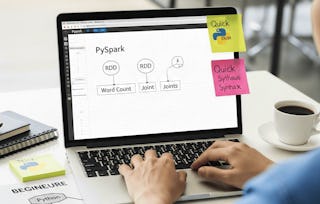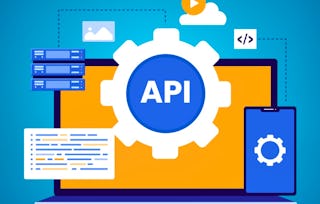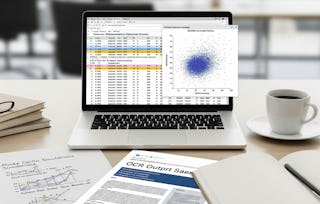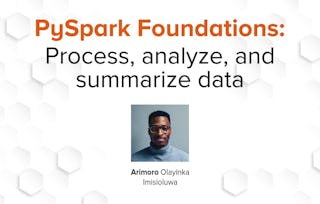PySpark in Action: Hands-on Data Processing is a practical course that equips you to work confidently with large-scale data using PySpark and distributed data processing frameworks. You’ll discover the fundamentals of Big Data, Apache Hadoop, and Apache Spark, then build on this knowledge through real-world exercises where you’ll process and analyze massive datasets.

PySpark in Action: Hands-On Data Processing

PySpark in Action: Hands-On Data Processing
This course is part of PySpark for Data Science Specialization

Instructor: Edureka
Included with
Recommended experience
What you'll learn
Explore the fundamental concepts of Big Data and the components of the Hadoop ecosystem.
Explain the architecture and key principles of Apache Spark and its role in big data processing.
Utilize RDD transformations and actions to effectively process large-scale datasets with PySpark.
Execute advanced DataFrame operations, including data manipulation and aggregation techniques.
Skills you'll gain
Details to know

Add to your LinkedIn profile
17 assignments
See how employees at top companies are mastering in-demand skills

Build your subject-matter expertise
- Learn new concepts from industry experts
- Gain a foundational understanding of a subject or tool
- Develop job-relevant skills with hands-on projects
- Earn a shareable career certificate

There are 5 modules in this course
This module introduces you to the fundamental concepts of Big Data and Hadoop. You will explore the Hadoop ecosystem, its components, and the Hadoop Distributed File System (HDFS), setting the foundation for understanding big data processing and storage solutions.
What's included
15 videos5 readings4 assignments1 discussion prompt
Dive into the core of PySpark by learning about Resilient Distributed Datasets (RDDs). This module covers the fundamentals of RDDs, how they work, and their key transformations and actions, enabling efficient distributed data processing in PySpark.
What's included
25 videos4 readings4 assignments3 discussion prompts
This module covers the creation and manipulation of DataFrames in PySpark. You will learn how to perform basic and advanced operations, including aggregation, grouping, and handling missing data, with a focus on optimizing large-scale data processing tasks.
What's included
22 videos4 readings4 assignments1 discussion prompt
In this module, you will explore the SQL capabilities of PySpark. Learn how to perform CRUD operations, execute SQL commands, and merge and aggregate data using PySpark SQL. You'll also discover best practices for using SQL with PySpark to enhance data workflows.
What's included
28 videos4 readings4 assignments2 discussion prompts
This module is meant to test how well you understand the different ideas and lessons you've learned in this course. You will undertake a project based on these PySpark concepts and complete a comprehensive quiz that will assess your confidence and proficiency in Data Processing with PySpark.
What's included
1 video1 reading1 assignment1 discussion prompt
Earn a career certificate
Add this credential to your LinkedIn profile, resume, or CV. Share it on social media and in your performance review.
Explore more from Data Analysis
 Status: Free Trial
Status: Free Trial Status: Preview
Status: PreviewEdureka
 Status: Free Trial
Status: Free Trial Status: Free
Status: Free
Why people choose Coursera for their career

Felipe M.

Jennifer J.

Larry W.

Chaitanya A.

Open new doors with Coursera Plus
Unlimited access to 10,000+ world-class courses, hands-on projects, and job-ready certificate programs - all included in your subscription
Advance your career with an online degree
Earn a degree from world-class universities - 100% online
Join over 3,400 global companies that choose Coursera for Business
Upskill your employees to excel in the digital economy
Frequently asked questions
You will need access to a computer with Python and Apache Spark installed. Detailed setup instructions will be provided at the beginning of the course.
This course is designed for individuals new to big data and PySpark, providing a solid foundation to start working with distributed data processing.
While prior SQL knowledge is beneficial, it is not mandatory. The course will introduce SQL concepts as they relate to PySpark and provide practice with SQL queries.
More questions
Financial aid available,

